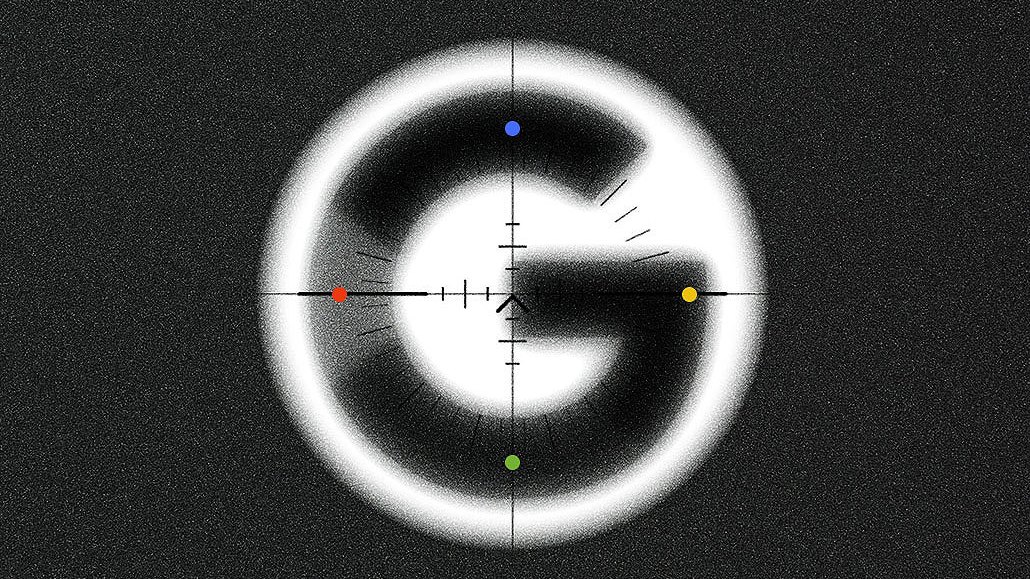Secure your place at the Digiday Media Buying Summit in Nashville, March 2-4
Why Google on trial is the pivotal moment that could shape the future of online advertising

When the U.S. government faces off against Google in court later today, it will be the start of the first significant attempt to rein in a major tech giant in a generation. If the Department of Justice manages to pull this off, it could really shake things up for Google, possibly giving its rivals a chance to grab a bigger slice of the pie in what used to be Google’s stronghold: search advertising.
Whether this happens depends on if Judge Amit P. Mehta believes that Google played a bit dirty by cutting deals with Apple, telco companies and other device makers to be the automatic search engine to users on their platforms and tech. The U.S. government argues that this strategy has harmed fair competition, effectively locking Google into a dominant 80 percent or higher market share in search.
Tuesday, September 12, 2023: Opening
Tuesday September 12 – Friday October 6, 2023: Parties opening statements DOJ’s Case-in-Chief
Tuesday October 9 – Tuesday October 24, 2023: (Colorado) State AGs Case-in-Chief
Wednesday October 25 – Wednesday November 15, 2023: Google’s Case-in-Chief
Thursday November 16 – Friday November 17, 2023: Rebuttal
Friday January 26, 2024 (estimated): File Post-trial briefs & PFOF (estimation based on scheduling order)
Perhaps this talk of monopolistic behavior rings a bell? That sense of déjà vu is because the U.S. government is also making a similar attempt to challenge Google’s dominance in open web advertising. The outcomes of both trials could be seismic, but the search one is arguably more critical since it’s the foundation of Google’s business. It’s also likely to impact the outcome of the ad tech case, which won’t start until some time next year at the earliest.
Whether Google can weather both storms remains uncertain. The case against its search business could go either way, and here’s why:
Google’s dominance over search advertising is undeniable, thanks to its strategic deals. Yet, it has always argued that competition is just a click away. It is, to be fair, but there’s a unique advantage to being the default search engine on devices and telecom networks, otherwise Google wouldn’t have invested heavily in securing these positions in the first place. On the other hand, Google’s defense draws parallels with food conglomerates securing prime spots in supermarkets for their brands — a prominent placement that doesn’t deter shoppers from exploring other options.
If the government is going to succeed in quashing this argument, then it needs to demonstrate Google’s dominance was achieved through illicit tactics, and subsequently violated the Sherman Act.
Section Two of the antitrust law puts a broad ban on any “exclusionary conduct” used to monopolize a market. The U.S. government achieved success with a similar complaint against Microsoft, which utilized exclusive contracts to boost its Internet Explorer browser and undermine browser maker Netscape.
If the government can’t demonstrate similar underhanded practices, Judge Mehta won’t prescribe any remedies. So far, it’s unclear whether they can definitively make that case.
“The DoJ has a big task in front of them in terms of proving Google obtained their dominance in search by illegal means,” said Derek Jacques, attorney and the principal owner of The Mitten Law Firm.
First, unlike older cases like the breakup of Standard Oil or AT&T, Google’s algorithm and other means of growth can be interpreted in many different ways, continued Jacques.
The old characteristics of creating market monopolies aren’t as clearly outlined in what is publicly available about the case.
But what if the government does win?
It’s a big “if,” of course, but there are a few ways an outcome on that scale could play out. Maybe Google has to make amends but continues its search operations within tighter constraints. Perhaps Judge Mehta takes a cue from European regulators and mandates that device manufacturers let users choose their preferred search engine. Or it could go the extreme route, leading to a potential (though unlikely) breakup of Google as a company.
Some outcomes are more plausible than others at this point. However, this could change as the case begins to take shape in the coming weeks and months.
This trial comes at a critical juncture for Google. In addition to the government’s ongoing investigations into its practices, tensions between the tech giant and its largest advertisers have been heating up, particularly in the wake of recent issues related to YouTube. Furthermore, Google’s search business faces potential disruption with the emergence of generative AI technologies.
Regardless of the outcome of this case, its implications for the industry will be substantial. If Google emerges victorious, its dominance of search advertising in the U.S. will remain unchallenged for the foreseeable future. However, if it loses and can no longer maintain its position as the default search engine on devices, it could pave the way for growth of competitors like Bing, or even motivate Apple to pursue its long-rumored search engine.
Simply put, this trial will serve as a gauge of whether big tech can be held accountable under the law.
More in Marketing

Future of Marketing Briefing: AI’s branding problem is why marketers keep it off the label
The reputational downside is clearer than the branding upside, which makes discretion the safer strategy.

While holdcos build ‘death stars of content,’ indie creative agencies take alternative routes
Indie agencies and the holding company sector were once bound together. The Super Bowl and WPP’s latest remodeling plans show they’re heading in different directions.

How Boll & Branch leverages AI for operational and creative tasks
Boll & Branch first and foremost uses AI to manage workflows across teams.








